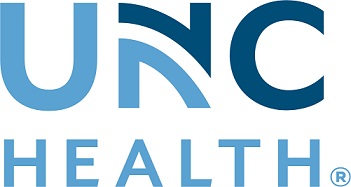Newswise — CHAPEL HILL, N.C. – UNC Medical Center is the first in the Mid Atlantic U.S. to treat patients with the EnSite Precision™ cardiac mapping system, a next-generation platform designed to provide automation, flexibility and accuracy for diagnostic mapping used in ablation procedures to treat patients with abnormal heart rhythms (cardiac arrhythmias). UNC Medical Center was among the first sites in the United States to utilize this technology, which recently received FDA clearance.
When physicians use catheter ablation to treat cardiac arrhythmias, several long, flexible tubes with wires - called catheters - are inserted into the heart. Diagnostic catheters record and “map” electrical information from the heart. The Abbott EnSite Precision cardiac mapping system provides highly detailed anatomical models and maps to enable diagnosis of a wide range of arrhythmias, guide therapy and expand procedural options. Ablation catheters deliver radiofrequency energy. The heat from the catheter creates a lesion or scar on the tissue where the abnormal heartbeats originate. As a result, this tissue is no longer capable of conducting or sustaining the arrhythmia.
“We have been using an earlier cardiac mapping system here at UNC for several years. The new mapping system is much faster – what used to take us hours now can be done in minutes – and it enables us to treat more complex cases than we could before,” said Paul Mounsey, MD, PhD, the Sewell Family/McAllister Distinguished Professor in the UNC School of Medicine and director of heart rhythm services for the UNC Center for Heart & Vascular Care.
“The technology in mapping systems is rapidly advancing. These new tools allow us to more rapidly understand complex arrhythmia circuits and have improved the efficacy of our procedures,” said Anil Gehi, MD, associate professor in the UNC School of Medicine and an electrophysiologist in the UNC Center for Heart & Vascular Care.
One of the distinctive features of the EnSite Precision cardiac mapping system is that it uses intelligent automation tools, which are designed to enable faster and more accurate high density maps allowing tailored treatment for a variety of cardiac arrhythmias, including complex cases. The ability to create rapid high-resolution models speeds up mapping time and minimizes fluoroscopic radiation exposure for both the patient and the clinicians.
The most common arrhythmia is atrial fibrillation, affecting more than 3 million Americans and millions more worldwide. Atrial fibrillation, also called AF or Afib, is a very fast, irregular heartbeat that occurs when the upper chambers of the heart beat so fast that they only can quiver. Atrial fibrillation can be dangerous, as over time it can cause more serious conditions such as stroke.
Marcia Van Riper is one of the first patients to be treated with the EnSite Precision system at UNC Medical Center. A professor and chair of the Family Health Division in the UNC School of Nursing, Van Riper has suffered from atrial fibrillation on and off for the last 10 years. Dr. Gehi performed her ablation procedure in early January. Nine days later she was back on the job.
“Last week I lectured on family-centered genomic healthcare to my class of 164 nursing students, and it went great!” Van Riper said. “I was very impressed with the care I received at UNC Medical Center. Dr Gehi and his team provided excellent care, as did the nurses and nursing assistants.”
About UNC Health CareWith more than 30,000 employees statewide, UNC Health Care has provided high-quality, patient-centered care for more than 60 years. UNC Health Care is a not-for-profit health care system owned by the state of North Carolina and based in Chapel Hill. The system includes UNC Hospitals in Chapel Hill, the UNC School of Medicine and nine affiliate hospitals across the state. To learn more, click here.
